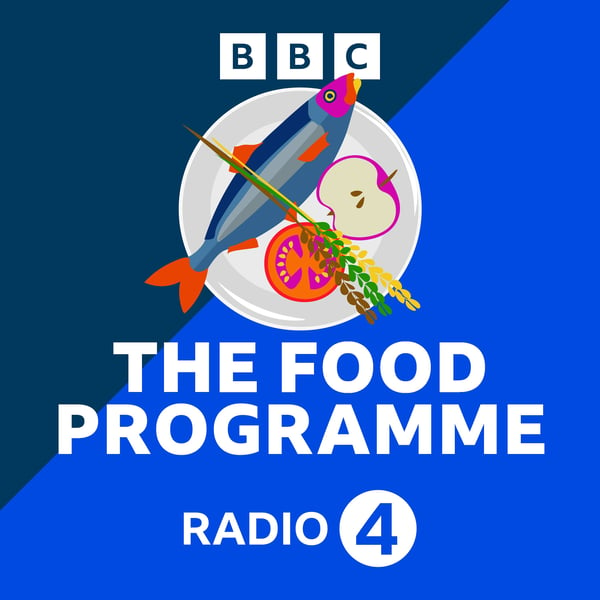Beans Part 2: How Spain Does Beans
The Food Programme
BBC
4.4 • 943 Ratings
🗓️ 3 April 2022
⏱️ 30 minutes
🧾️ Download transcript
Summary
A few months ago, Sheila Dillon opened a glass jar of chickpeas in her kitchen. Their taste was so different from those she had been eating for years from cans, she took to social media to find out why. The story that unfolded in the comments led back to the Spanish, and their way of eating beans and other legumes.
In this programme we meet the people who grow, select, process and trade beans, and hear of a culture that respects legumes, where home cooks know how to flavour them, often cook them from dry, and their many varieties are on display in markets and supermarkets.
Sheila accompanies Spanish food importer and expert, Monika Linton, as she visits her processed and dried bean suppliers in the Navarra and Salamanca regions of Spain. Monika first set up her company Brindisa, bringing food from Spain into the UK, 35 years ago. She says legumes are for the Spanish what pasta is for the Italians.
On the lentil fields of the Salamanca plains, we hear how farmers manage relatively small plots of land, and how the beans are used in rotation with other crops in order to both feed people, and nourish the soils.
However not all beans eaten in Spain are grown locally. In Madrid, Mario Castellanos from Legumbres Castellanos, his family business, explains why the country still relies heavily on imports from other nations.
Presented by Sheila Dillon Produced in Bristol by Natalie Donovan
Transcript
Click on a timestamp to play from that location
| 0:00.0 | You're about to listen to a BBC podcast and I'd like to tell you a bit about the |
| 0:03.8 | podcast I work on. I'm Dan Clark and I commissioned factual podcasts at the BBC. |
| 0:08.6 | It's a massive area but I'd sum it up as stories to help us make sense of the forces shaping the world. |
| 0:15.3 | What podcasting does is give us the space and the time to take brilliant BBC journalism |
| 0:19.8 | and tell amazing compelling stories that really get behind the headlines. |
| 0:23.7 | And what I get really excited about is when we find a way of drawing you into a subject |
| 0:28.4 | you might not even have thought you were interested in. |
| 0:30.2 | Whether it's investigations, science, tech, politics, culture, true crime, the environment, |
| 0:36.1 | you can always discover more with a podcast on BBC Sounds. |
| 0:39.7 | BBC Sounds, music, radio podcasts. |
| 0:44.6 | Hello, you've downloaded a podcast of BBC Radio 4's The Food Program. |
| 0:49.7 | Welcome to our world, from cooking to culture, politics to pleasure. |
| 0:54.7 | We hope you enjoy it. |
| 0:56.6 | All right. |
| 0:57.6 | We've just arrived in Madrid and we're here because this is one of the countries around the Mediterranean that most loves and appreciates beans. |
| 1:11.0 | So we've come to see what loving and appreciating and growing and |
| 1:16.0 | celebrating beans is about. I mean beans which have meant poverty in Britain, |
| 1:22.0 | you were hard up if you had to eat a lot of beans. It's not like that here, so I'm told. |
| 1:28.0 | Dry beans are a very big thing. I mean legumes in general in Spain are a very big thing. Legumes to the Spanish are what |
| 1:35.3 | pasta is to the Italians. I mean they eat it every day. I mean they really do taste amazing. |
| 1:40.9 | And play their part in making Spain the healthiest country in the world |
| 1:45.6 | according to the latest index on global health from Bloomberg. So in pursuit |
... |
Please login to see the full transcript.
Disclaimer: The podcast and artwork embedded on this page are from BBC, and are the property of its owner and not affiliated with or endorsed by Tapesearch.
Generated transcripts are the property of BBC and are distributed freely under the Fair Use doctrine. Transcripts generated by Tapesearch are not guaranteed to be accurate.
Copyright © Tapesearch 2025.

